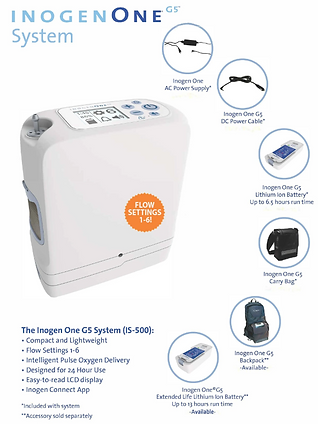
Discount Oxygen Concentrator Rentals in Houston
Looking for reliable oxygen therapy in Houston without the hassle? Complete Medical Supply offers rental-ready oxygen concentrators with quick delivery across Houston and surrounding neighborhoods. Choose from portable or home-use units, professionally sanitized and fully set up by our local team. No insurance approvals, just fast, flexible support when you need it most.
Why Rent a Oxygen Concentrator from Complete Medical Supply?
Breathe easier with clean, reliable equipment and local support you can count on. Whether you're recovering at home or need temporary oxygen therapy, we make the rental process simple and safe:
✅ Home and portable concentrators available
✅ Same-day delivery in Houston and Cypress
✅ Professionally sanitized and tested before each use
✅ Flexible rental terms with weekly and monthly options
✅ No insurance or long approvals required — rent today
From post-surgery recovery to travel needs, our oxygen concentrators are ready when you are.
Essential Safety Tips for Properly Using Oxygen Tanks
Using oxygen tanks safely is crucial for ensuring effective therapy and preventing accidents
Watch Our Video to Learn More!
✅ Store upright in a well-ventilated area
✅ Avoid smoking near oxygen tanks & devices
✅ Regularly inspect your tank for any signs of leaks
✅ Follow your doctor's recommendation on liter flow
Renting a Home Oxygen Concentrator in Houston?
What is a Home Oxygen Concentrator?
A home oxygen concentrator is a medical device that extracts oxygen from the surrounding air and delivers it to individuals who need supplemental oxygen therapy. Unlike oxygen tanks, it does not require refilling; instead, it continuously produces oxygen by filtering and concentrating it from the air.
Renting a home oxygen concentrator from us ensures you receive high-quality equipment with exceptional customer service. We offer flexible rental plans tailored to your needs, whether for short-term recovery or ongoing respiratory support.
Our oxygen concentrators are reliable, easy to use, and regularly maintained for optimal performance. By choosing Complete Medical Supply, you gain access to the latest oxygen therapy technology without the burden of ownership costs. Experience the convenience, affordability, and peace of mind that come with renting from a trusted provider

Travel Easy by Renting a Portable Oxygen Concentrator
What is a Portable Oxygen Concentrator and what makes it so popular?
A portable oxygen concentrator (POC) is a medical device that provides a continuous supply of oxygen to individuals with respiratory conditions, such as COPD or pulmonary fibrosis, who require supplemental oxygen.
Portable concentrators typically work with a Pulse-Dose mechanism which means that they dispense oxygen periodically as the unit detects the user's breath. This aids in conserving the battery life of the unit for maximum efficiency.
Unlike traditional oxygen tanks, which store a finite amount of oxygen, a POC filters and concentrates oxygen from the ambient air, making it a more sustainable and convenient option. All portable concentrators that we carry in-store are FAA approved for airline travel.







